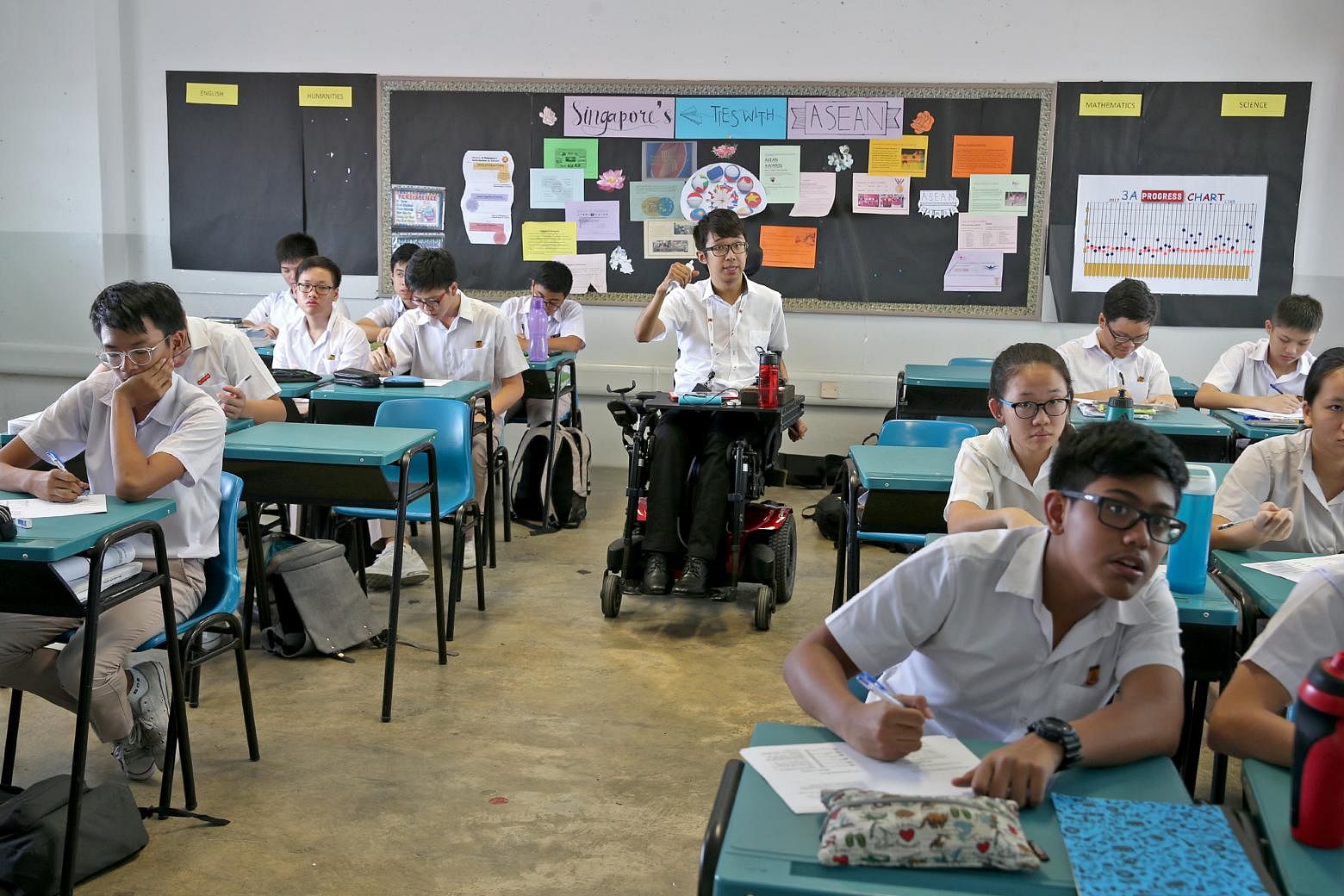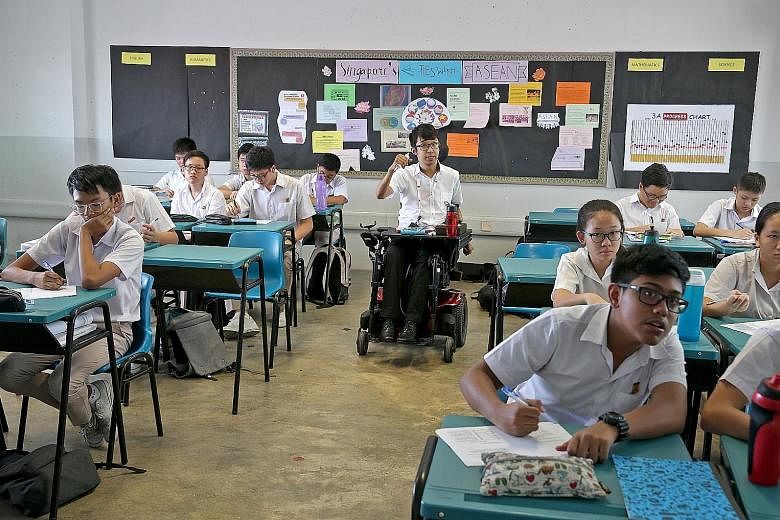"I dived into the sea and suddenly, I was unable to move. Although I had not hit anything, I had the odd sensation of not feeling my body.
This was at Palawan Beach on Sentosa. I had just finished my first year at the National University of Singapore (NUS) and was helping out at the science faculty orientation camp before the start of the following academic year.
At first, my friends thought I was fooling around as I was face down in the water for some time. Then they realised something was wrong and came to my rescue.
At the hospital, doctors found I had fractured my neck and injured my spinal cord. At the age of 21, I was paralysed from the chest down.
Everything became very difficult and challenging in the six months I was hospitalised for intensive rehabilitation. I had to relearn how to sit, eat and use the phone. I couldn't move my fingers, which were clenched into permanent fists.
My lung capacity was also affected and I could talk only for a few seconds before I would feel breathless. Suddenly, I needed help with everything.
But I cried only once after my accident, when it hit me that I couldn't do anything for myself. I thought, if it's like this for the rest of my life, what am I going to do?
At first, the orthopaedic surgeon said I should be able to walk again after one or two years. But gradually, it dawned on me that I would never move on my own two feet again.
But I didn't feel sorry for myself. I didn't ask why this had happened to me or what I had done to deserve this. With reasonable probability, it could happen to anyone. So I felt it was more useful to focus on what I could still do. If I kept focusing on how difficult my life was, I would sink into a downward spiral.
My mum, a housewife, is my main caregiver now. She helps me with showering, going to the toilet and dressing. My dad, a carpenter, carries me from the wheelchair to the bed. I also have a younger sister.
Before the accident, there was a period in my life when I felt very down and I questioned the value of my existence. But now I realise the value of one person's life is not just the value we create for ourselves, but also for those around us.
This is also the reason I want to be a teacher - to create value for the lives of my students.
I went back to school about a year after the accident. The College of Alice and Peter Tan (a residential college at NUS) asked me if I wanted to live on campus. I didn't think it was possible initially as I needed help with the activities of daily living.
But they roped in my neighbours to help, such as carry me out of bed and into the wheelchair, squeeze toothpaste onto my toothbrush and clear my urine bag. At first, I felt embarrassed to be asking for help for every single thing. But everyone - from my neighbours on campus to my lecturers - was very helpful. The support of my family and friends also kept me going.
I didn't want my disability to be an excuse for not taking part in extra-curricular activities. So I took part in hostel activities and was on the Science Club management committee. I even went on a trip to Germany organised by the physics department to visit research laboratories and universities there.
For commencement, I was nominated as valedictorian. I was not the top student, but the physics department wanted to honour all the hard work I had put in. I was very grateful for the opportunity.
I'm doing a postgraduate diploma in education at the National Institute of Education, on a Teaching Award from the Ministry of Education (MOE). Last November, I finished a four-month teaching stint at Bedok South Secondary School. I enjoyed my interactions with the students, who were touched and inspired by how I faced my challenges.
(An MOE spokesman told The Straits Times that Mr Wong will be deployed as a teacher once he finishes the 16-month programme.)

Before my injury, I was someone who planned a lot for the future.
But now, I don't know what the future holds so I take things one step at a time. I try to work hard and give my best in whatever I do, so others feel it's worth their time to help me. I never take any help for granted.
I consider myself fortunate that the accident did not happen 20 years ago when Singapore was not as accessible for people with disabilities as it is now. I can take the bus or MRT in my motorised wheelchair by myself. I can reply to messages via a touchscreen phone using my thumb.
Our society has become more accepting of people with disabilities and it is more inclusive. Now I have even higher expectations of myself - not to give up, and not to use my disability as an excuse to stop trying."
GENERATION GRIT: Know of a Singaporean aged 35 or below who has shown grit amid life's adversities? E-mail us at stnewsdesk@sph.com.sg


